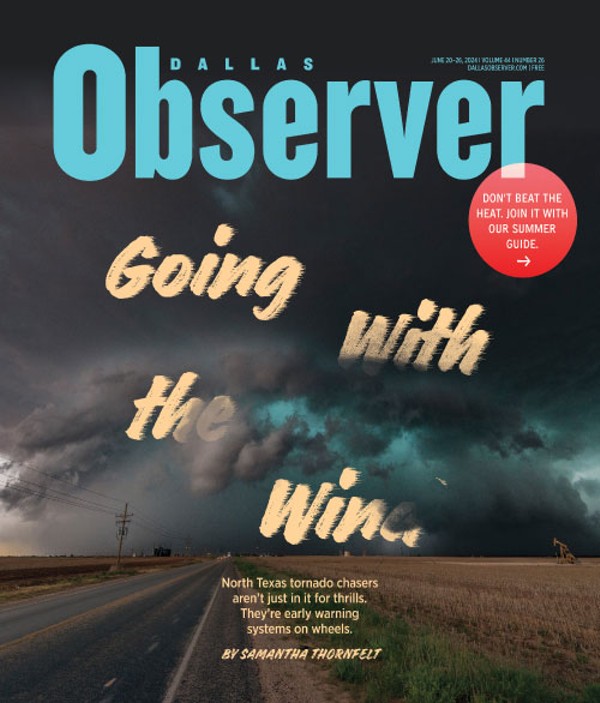UPDATE, June 25: This story has been edited to include comments from Dallas ISD Superintendent Stephanie Elizalde.
A sharp spike in the number of Texas students who scored a zero on the writing portion of state standardized tests is raising red flags across the state. According to Dallas ISD Superintendent Stephanie Elizalde, between 45% and 50% of DISD students received a score of zero on the essay portions of state exams given last spring.
The alarming data comes a year after the state redesigned the STAAR exam — a standardized test given to all public school third- through 12th-graders — to include essay questions for every grade level and computer evaluations of submitted answers. Scoring data shows that Dallas ISD's numbers are worse than the statewide average: 39% of Texas third graders and 48% of fifth graders received no points for written responses. For seventh and eighth graders, the percentage scoring zero were 27% and 28%, respectively.
Before the exam redesign, only fourth and seventh graders were given open-ended questions, and around 5% received a zero on their writing examinations statewide, Houston Public Media reports.
The Texas State Teachers Association has long stood against the STAAR exam, stating it is a "gotcha” test designed to penalize students after a school year has ended rather than track progress, Clay Robison, a TSTA spokesperson, told the Observer He is concerned that the low test scores will further erode trust between parents, teachers and the state.
“Were I a parent whose student got a zero on a writing test, particularly after the student had done well in school writing courses, I certainly would be suspicious,” Robison said. “This is certainly a big jump for zeros. I definitely think that the grading system, based on these results, needs to be looked at. Or at least the Texas Education Agency (TEA) needs to do some explaining very quickly.”
Around 75% of written responses are now graded by a computer system, as reported by The Dallas Morning News last year, after TEA transitioned to an “automated scoring engine” for essay evaluations. TEA began using the scoring engine for grading in December 2023, a spokesperson told the Observer
.
“This is certainly a big jump for zeros." – Clay Robison, Texas Education Agency
tweet this
The artificial intelligence grader takes advantage of natural language processing but is "in no way like Chat GPT," a generative AI software, the spokesperson said. The scoring engine is intended to maximize efficiency after the increase in open-ended questions given to students threatened to cost up to $20 million in additional manpower for grading, officials told the Morning News.
Elizalde said the district has given student writing samples to the internal auditors, who, using the rubric, have given fives and sixes to writing samples that received no points. Elizalde said the “conundrum” has left the district unsure of how to move forward, especially when student STAAR scores can impact high-stakes rankings like campus and district evaluations.
“We actually have a lot more questions than we have answers,” Elizalde told the Observer. “We’re not talking about [the scores] being off just a little bit. … If we’re not aligned with how the computer-generated scoring is occurring, then I am really at a disadvantage for preparing our teachers.”
Elizalde said the district underwent more STAAR curriculum preparation and trainings this year than in years past, so the drop in performance is especially befuddling.
Lewisville ISD Superintendent Lori Rapp told NBC5 her district also saw a dramatic increase in students receiving zeros on their exams, resulting in "strong concerns" in the grading system. TEA told the Observer there does not appear to be evidence of a grading problem at this time.
"[The agency] will certainly evaluate any evidence that is provided," a spokesperson said. "Additionally, all districts can see each of their students' responses and scores and request a rescore of any constructed response question they view as incorrectly graded."
TEA officials believe the increase in students scoring zero is a result of a rubric change rather than of automated scoring.
"Under the previous rubric, if a student attempted an answer to a writing prompt, the student would get a score above zero as long as they provided some kind of response,” TEA said. “Now, even if the student provides a grammatically perfect response, if the response is off-topic, it is scored a zero."
In a statement released last week, the agency did not acknowledge the increase in zeros on written exams, but express worries about declining scores in math and science examinations. Math scores have not recovered to pre-pandemic levels, TEA said.
“While we continue to see progress in other areas — which is a testament to the dedication and skill of our Texas educators — it’s clear that math performance is not where students need it to be for success after graduation,” Texas Education Commissioner Mike Morath said in the statement. “Pandemic-induced disruptions to learning exacerbated students’ difficulties in mastering fundamental math concepts. We must keep our foot on the gas.”
Dallas ISD math test scores were consistent with the statewide trend, and math was the most problematic subject area for 2023’s STAAR exams as well.
"I don't want to dismiss what I saw happening in classrooms all year long. I saw amazing teaching," Elizalde said. "The statistics we have absolutely indicate that we should at least consider that there is something systemic happening with student scores."












